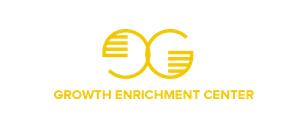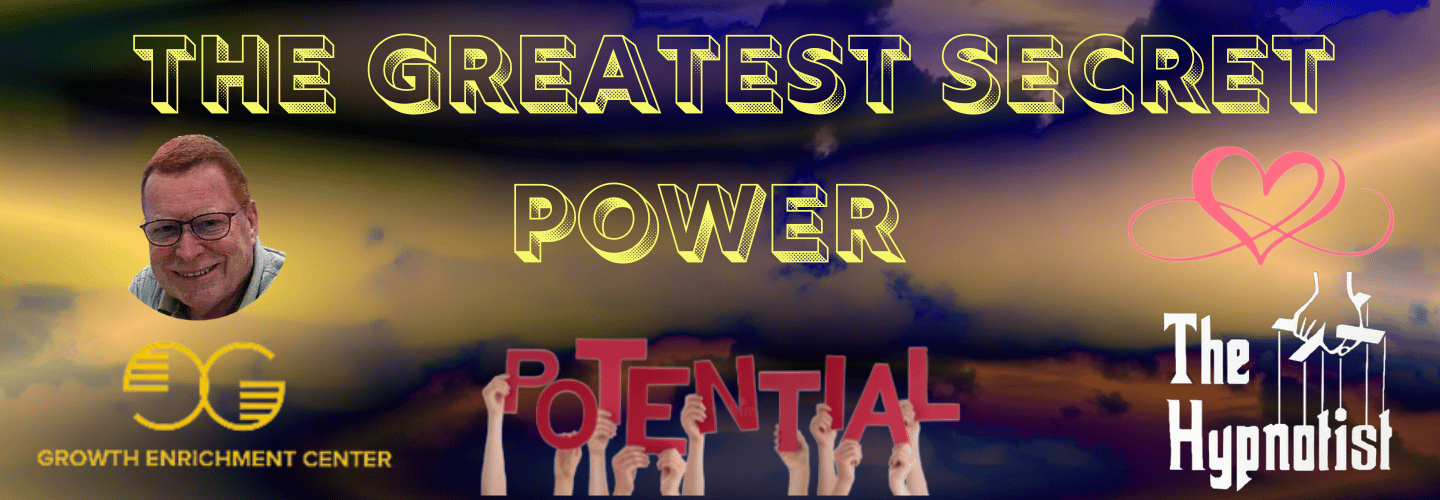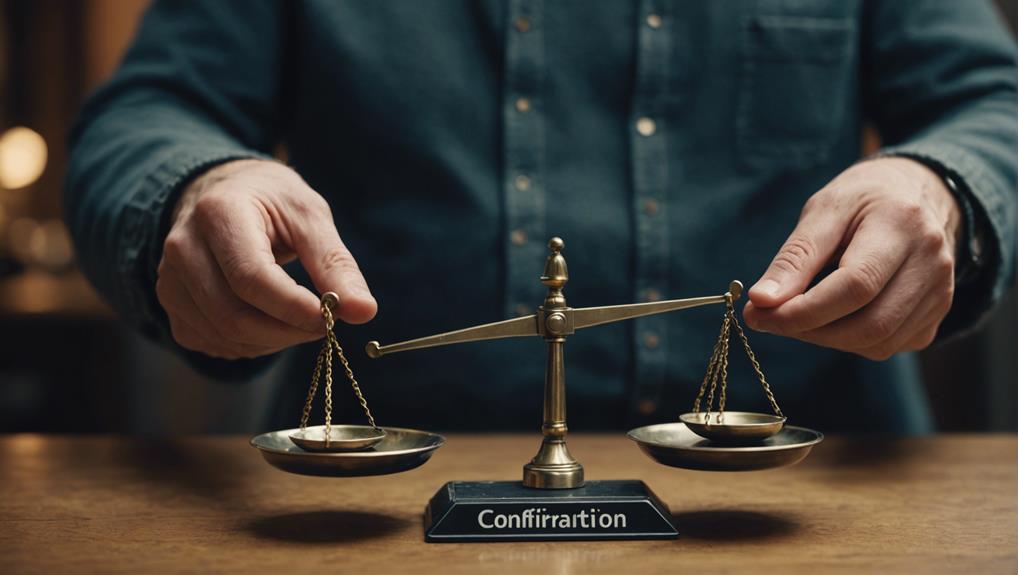
Have you ever considered how confirmation bias might be influencing your decision-making without you even realizing it? The 10 best strategies to overcome this cognitive bias can greatly impact the way you perceive information and make choices in your daily life. By implementing these techniques, you'll be equipped to navigate through the complexities of biased thinking and embrace a more rational and open-minded approach to the world around you.
Understanding Confirmation Bias
To truly understand confirmation bias, start by recognizing the tendency to seek out information that aligns with your existing beliefs. It's a natural inclination to gravitate towards evidence that supports what you already think or feel. This bias can cloud your judgment without you even realizing it, leading to a skewed perception of reality. It's important to acknowledge that everyone experiences confirmation bias to some extent; it doesn't make you flawed, just human.
Seeking Diverse Perspectives
Broaden your horizons by actively seeking out diverse perspectives to counteract confirmation bias. Embracing a variety of viewpoints can help you make more informed decisions and see the world from different angles. Here are three ways to incorporate diverse perspectives into your thinking:
- Engage in Meaningful Conversations: Take the time to talk to people with diverse backgrounds, beliefs, and experiences. Listening actively and empathetically can help you understand different points of view and challenge your own biases.
- Diversify Your Sources of Information: Don't limit yourself to sources that confirm your existing beliefs. Seek out news outlets, books, and websites that present a wide range of opinions and perspectives.
- Join Diverse Communities: Being part of groups with members from various backgrounds can expose you to different ways of thinking. Engaging with a diverse community can broaden your understanding and help you appreciate the richness of different perspectives.
Embracing Disconfirming Evidence

Embracing disconfirming evidence can be a powerful tool in your journey to overcome confirmation bias. Value contrary perspectives to broaden your understanding and challenge your assumptions.
Seek opposing viewpoints not to prove them wrong, but to enrich your own perspective.
Value Contrary Perspectives
Considering alternative viewpoints can be a transformative step in combating confirmation bias, opening your mind to new perspectives and challenging your own beliefs.
Here are three compelling reasons why valuing contrary perspectives is essential in overcoming confirmation bias:
- Broadens Your Understanding: Embracing contrary opinions allows you to see the full spectrum of an issue, providing a more in-depth understanding.
- Fosters Growth: By welcoming differing viewpoints, you create opportunities for personal growth and development, enhancing your critical thinking skills.
- Strengthens Decision Making: Evaluating contrary perspectives helps you make more informed decisions by weighing multiple angles before drawing conclusions.
Seek Opposing Viewpoints
To improve your ability to combat confirmation bias effectively, actively seek out opposing viewpoints and embrace disconfirming evidence. When you expose yourself to different perspectives, you open the door to growth and learning.
It's natural to feel comfortable with ideas that align with your beliefs, but true intellectual development comes from engaging with conflicting opinions. Embracing disconfirming evidence doesn't mean you have to abandon your current beliefs; rather, it allows you to refine them through critical thinking.
This process builds resilience in your convictions and fosters a deeper understanding of complex issues. By approaching opposing viewpoints with an open mind, you cultivate a more well-rounded perspective and enhance your decision-making skills.
Challenge Your Assumptions
Challenge your assumptions by actively seeking out information that contradicts your beliefs. Embracing disconfirming evidence can be uncomfortable but is essential for personal growth and overcoming confirmation bias.
Here are three compelling reasons to embrace opposing viewpoints:
- Broaden Your Perspective: Engaging with conflicting information allows you to see the full picture, not just what aligns with your preconceptions.
- Enhance Critical Thinking: By analyzing contradictory data, you sharpen your reasoning skills and develop a more balanced approach to decision-making.
- Foster Growth and Learning: Embracing diverse opinions promotes intellectual humility, opening doors to new knowledge and insights that can enrich your life.
Practicing Mindfulness

One effective way to combat confirmation bias is by incorporating mindfulness practices into your daily routine. Mindfulness allows you to become more aware of your thoughts, emotions, and biases without judgment. By practicing mindfulness, you can observe how confirmation bias may be influencing your perceptions and decisions. Take a few moments each day to sit quietly, focus on your breath, and bring your awareness to the present moment. This simple practice can help you become more attuned to the information you're taking in and how you're processing it.
Engaging in mindfulness can also help you cultivate a sense of curiosity and openness to different perspectives. When you approach situations with a beginner's mind, you're more likely to question your assumptions and consider alternative viewpoints. This heightened awareness can assist you in recognizing when confirmation bias is creeping in and guide you towards a more balanced and objective mindset. Embrace mindfulness as a powerful tool to navigate the complexities of confirmation bias and enhance your decision-making process.
Engaging in Self-Reflection
Explore your inner thoughts and biases by engaging in self-reflection as a valuable practice to combat confirmation bias. Self-reflection allows you to examine your beliefs, values, and assumptions, helping you become more aware of your biases and preconceptions.
Here are three effective ways to engage in self-reflection:
- Journaling: Take time each day to write down your thoughts, feelings, and experiences. Reflect on why you hold certain beliefs and how they may influence your perceptions.
- Meditation: Practice mindfulness meditation to observe your thoughts without judgment. This can help you identify patterns of thinking that may be influenced by confirmation bias.
- Seek Feedback: Encourage others to provide honest feedback about your ideas and perspectives. Listen with an open mind and consider how their insights may challenge your existing beliefs.
Encouraging Debate and Discussion
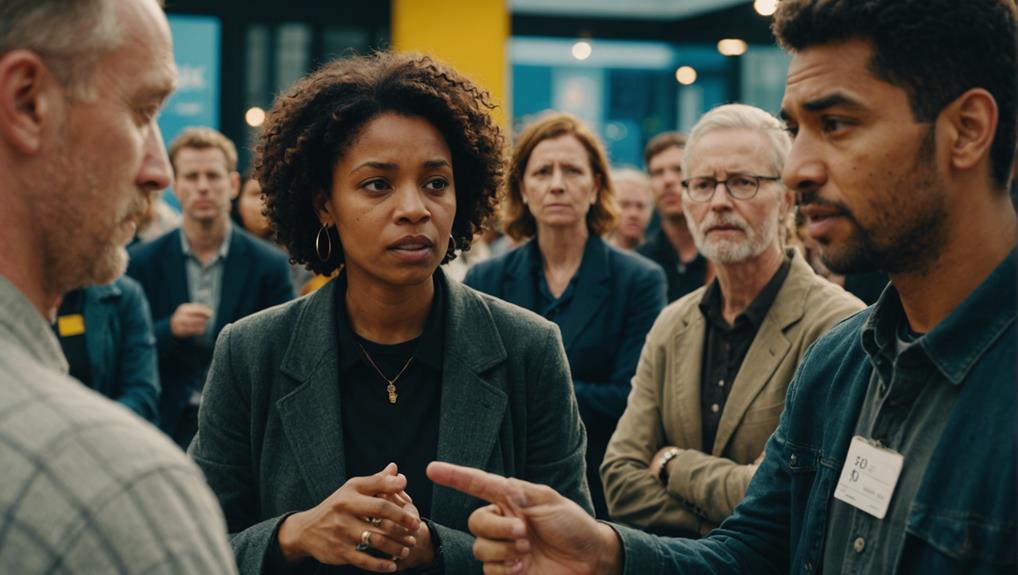
To nurture a culture of critical thinking and diverse perspectives, encourage open debate and discussion among individuals with varying viewpoints. Embracing differing opinions can help challenge your own beliefs and reduce the impact of confirmation bias. When you engage in debates, listen actively to others' arguments without immediately dismissing them. Instead of aiming to win the discussion, endeavor to understand different perspectives and the reasoning behind them. Remember, the goal isn't to prove someone wrong but to seek the truth collectively.
Creating a safe space where people feel comfortable expressing their views without fear of judgment is essential. Encouraging debate requires respect, empathy, and a willingness to learn from others. Embrace the opportunity to broaden your horizons by actively participating in discussions with an open mind. By inviting constructive debates, you invite growth and learning into your life. So, be open, be curious, and be ready to engage in meaningful conversations that challenge your perspectives.
Utilizing Decision-Making Tools
Enhance your decision-making process by incorporating effective tools and techniques that can guide you towards making informed and rational choices. Making decisions can be challenging, but with the right tools at your disposal, you can navigate through the process more confidently.
Here are three key decision-making tools to contemplate:
- Decision Matrix: Use a decision matrix to list your options, important factors, and assess the impact of each option on these factors. This tool helps you quantify your choices and visualize the best course of action.
- SWOT Analysis: Conduct a SWOT analysis to evaluate the strengths, weaknesses, opportunities, and threats of each decision. By identifying these aspects, you can make more strategic and balanced decisions.
- Cost-Benefit Analysis: Compare the costs and benefits of each option using a cost-benefit analysis. This tool allows you to weigh the pros and cons objectively, helping you make decisions based on sound financial and qualitative considerations.
Consulting Trusted Sources

When facing confirmation bias, remember the power of consulting trusted sources. Reliable information filters and expert opinion validation can provide you with a well-rounded perspective.
Embrace the opportunity to seek out viewpoints that challenge your beliefs and lead you towards informed decisions.
Reliable Information Filters
In your quest to combat confirmation bias, seek out trusted sources to act as reliable filters for information. When traversing through the sea of information, it's essential to have reliable filters in place to help you discern fact from fiction.
Here are three ways to establish reliable information filters:
- Diversify Your Sources: Engage with a variety of reputable outlets to gain a well-rounded perspective.
- Check the Credentials: Verify the expertise and credibility of the sources you rely on for information.
- Stay Updated: Regularly assess and update your list of trusted sources to make sure you're getting the most accurate information.
Expert Opinion Validation
To validate expert opinions effectively, seek guidance from trusted sources that have a proven track record of accuracy and reliability.
When consulting experts, focus on their expertise in the specific field relevant to your decision-making process. Look for individuals or organizations with a history of making well-informed and unbiased assessments.
Consider seeking out sources that have been consistently accurate in their predictions or recommendations. By relying on established experts in the field, you can reduce the impact of confirmation bias and make more informed decisions.
Cultivating Intellectual Humility
Cultivating a mindset of humility can be the key to expanding your intellectual horizons and overcoming confirmation bias. Embracing intellectual humility requires a willingness to acknowledge that your knowledge is limited and that you may not have all the answers.
Here are three ways to cultivate intellectual humility:
- Embrace Curiosity: Approach new information with a inquisitive mindset, ready to learn and explore different perspectives. Curiosity opens the door to new insights and helps you see beyond your preconceived notions.
- Practice Active Listening: Truly listening to others without immediately dismissing their ideas allows you to ponder viewpoints that differ from your own. Engaging in active listening shows respect for others' opinions and fosters a more open-minded approach.
- Seek Diverse Perspectives: Actively seek out viewpoints that challenge your beliefs. Surround yourself with diverse voices and opinions to broaden your understanding of complex issues. Exposing yourself to different perspectives can help you break free from the constraints of confirmation bias and foster a more inclusive worldview.
Implementing Feedback Mechanisms
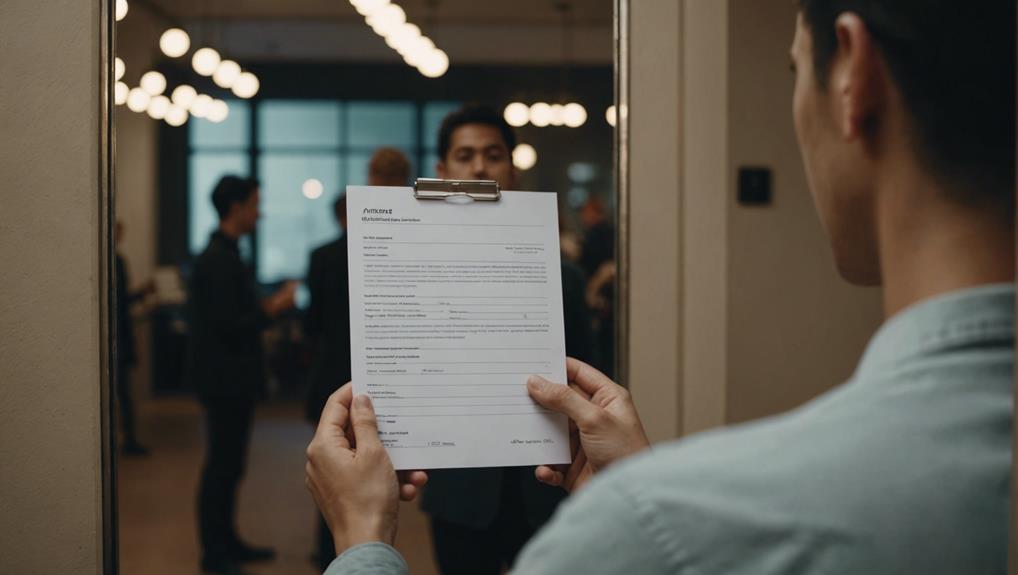
Welcome to the pivotal step of implementing feedback mechanisms to combat confirmation bias.
Embrace the journey of continuous improvement through feedback, where each comment and suggestion is a stepping stone towards growth.
Continuous Improvement Through Feedback
Embrace the power of feedback as a catalyst for continuous improvement, driving you towards greater self-awareness and growth in overcoming confirmation bias. Feedback isn't just about receiving comments; it's a tool for personal development. Here's how to make the most of it:
- Seek Diverse Perspectives: Encourage feedback from a variety of sources to gain different viewpoints.
- Actively Listen and Reflect: Truly engage with feedback, ponder on it, and identify areas where you can evolve.
- Set Actionable Goals: Use feedback to establish clear objectives for improvement, making progress tangible and achievable.
Monitoring User Experience
To enhance your understanding of user interactions and preferences, implementing feedback mechanisms is essential for refining and optimizing the overall user experience. Actively monitoring user experience through feedback forms, surveys, user testing, and analytics provides valuable insights into what aspects of your product or service resonate with users and what areas may need improvement.
By collecting and analyzing user feedback, you can uncover valuable patterns, identify pain points, and make informed decisions to enhance the overall user journey. Embrace feedback as a tool for growth and innovation, allowing you to tailor your offerings to better meet the needs and expectations of your users.
Adjusting Based on Data
To refine your product or service effectively, implementing feedback mechanisms is essential in adjusting based on data. By embracing feedback, you can gain valuable insights into your offerings and make informed decisions to enhance them. Here's how you can effectively adjust based on data:
- Collect Detailed Data: Utilize various tools to gather detailed information about user interactions and preferences.
- Analyze Trends and Patterns: Identify recurring trends and patterns within the data to understand what's working well and what needs improvement.
- Iterate and Test: Implement changes based on the data insights, test them rigorously, and iterate continuously to optimize your product or service.
Frequently Asked Questions
How Can Confirmation Bias Affect Group Dynamics?
When confirmation bias influences group dynamics, it can hinder open discussions, limit diverse viewpoints, and lead to flawed decision-making. Embrace curiosity, encourage critical thinking, and foster an environment where differing perspectives are valued to combat this bias.
Can Confirmation Bias Be Beneficial in Any Situations?
Sometimes, you might think confirmation bias is helpful. It can make you feel secure in your beliefs. But, questioning and seeking diverse perspectives can lead to growth and understanding beyond your current views.
What Role Does Emotional Intelligence Play in Overcoming Confirmation Bias?
To overcome confirmation bias, emotional intelligence plays a vital role. By understanding and managing your emotions effectively, you can approach situations with a clear mind, open to new information, and less swayed by preconceived beliefs.
How Can Cultural Differences Influence Confirmation Bias?
When maneuvering confirmation bias, consider how cultural differences can shape perceptions. Embrace empathy and explore diverse viewpoints. Seek to understand varying perspectives. Stay open-minded and challenge preconceptions. Embracing diversity can help overcome biases.
Are There Any Technological Tools to Help Combat Confirmation Bias?
You can utilize various technological tools to help combat confirmation bias. Implementing fact-checking plugins, diverse news sources, and critical thinking apps can broaden your perspective and challenge your beliefs, fostering a more balanced worldview.
Conclusion
Congratulations on completing the 10 best strategies to overcome confirmation bias!
By seeking diverse perspectives, embracing disconfirming evidence, and practicing mindfulness, you have taken the first steps towards making more objective decisions.
Remember to engage in self-reflection, utilize decision-making tools, and cultivate intellectual humility to continue challenging your biases.
Implement feedback mechanisms to guarantee continuous growth.
Stay open-minded, stay informed, and stay empowered to make rational choices confidently.
